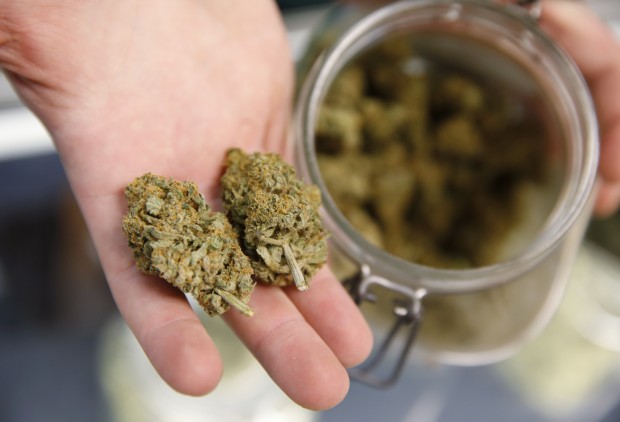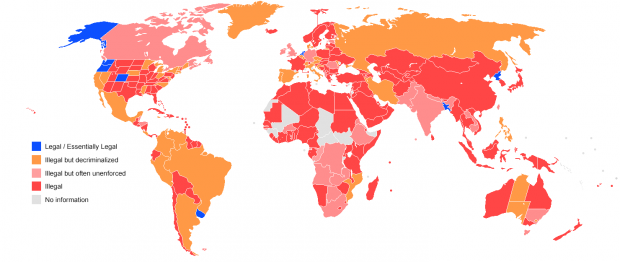Marijuana laws take a new turn in Middle East

a bud tender holds two marijuana buds on his fingers on the way to a customer at the Denver Kush Club in north Denver. (AP Photo/David Zalubowski)
Recently Mexico became one of the few countries to legalize marijuana cultivation and possession, joining Bangladesh, Colombia, Uruguay, and others. But in some regions, most specifically the Middle East, there is a set of strict laws when it comes to cannabis possession or cultivation.
Marijuana or cannabis is not specifically banned in Islam but its effects have been likened to alcohol, which is banned by the religion, that’s why its ban is so widespread in the Islamic countries for religious reason.
It’s known that cannabis is illegal in Egypt, but its use is widespread as a part of every day culture. Convictions for personal use are very rare. Cannabis was made illegal in 1925 with the League of Nations’ Geneva International Convention on Narcotic Control, and has been aggressively targeted since then, despite the ancient Egyptian documentation of its medical use. The same applies to Lebanon where cannabis possession is illegal. However, large amounts are grown within the country for personal use, as long as it’s not in public is not a major issue.

Marijuana legislation in the world, it shows how widely legalized it is in the Middle East. (Wikipedia)
Saudi Arabia has stricter rules when it comes to cannabis as use and possession for personal use of any kind of drugs is punishable by imprisonment if caught. Imprisonment for personal use could go up to six months jail time or more. Dealing and smuggling of high amounts of drugs usually result in harsher prison time or even execution, and foreigners who use drugs might be deported. Imprisonment is a punishment in Syria as well for possession or cultivation of cannabis. It gets harsher in Tunisia, Turkey and United Arab Emirates as the jail sentences could go up to 5 years for cannabis possession.
But in 2015 some Middle Eastern countries started to decriminalize marijuana and cannabis cultivation and even legalize it. It started with Jordan, which became the first Arab country to do so, after the decriminalized marijuana possession for personal use in November 2015. Which led Morocco, another Muslim Arab country, to consider partial legislation of cannabis. As a draft law was suggested by parliamentarians to legalize the production of marijuana growing for medical and industrial use, while still criminalizing consumption for recreational purposes.
Another country that’s expected to follow in these steps is Iran, which despite not releasing any official statements in the meantime, but the suggestions made by Saeed Sefatian, Iranian official and head of the working group on drug demand reduction in the Expediency Council, shows that legalizing cannabis might be Iran’s future approach to maintaining control over its drug problems.






















































I am surprised of this false information about Jordan, I am a Jordanian citizen and I was jailed at march of 2016 for position of marijuana and I faced 3 months of jail time and another 3 months of restraining order.
Marijuana is not legal in Jordan and was never tolerated by police or DEA
Same in Bangladesh, never got legal status of production, consumption for marihuana
Hi, I am Jack from USA. I will like to inform you that we got the best Quality Cbd Oil,Flowers, Thc Cartridges,Cannabis Feminized seeds for both indoors and outdoor growing. If you by any chance have interest in our seeds, Email us at….(tplug05@gmail.com).